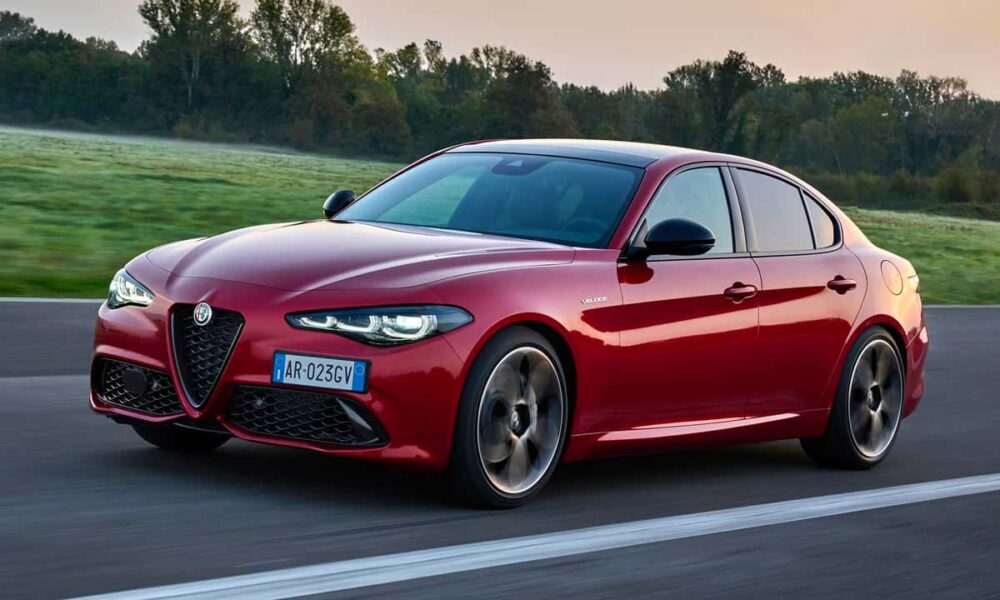UPDATE: Alfa Romeo has just announced an unexpected extension of production for its popular Giulia sedan and Stelvio SUV until 2027. Initially set to retire this year, these iconic models will continue rolling off the assembly line at the Cassino plant in Italy, a decision that underscores the brand’s strategic pivot in response to evolving market dynamics.
The Giulia and Stelvio, both riding on the Giorgio platform, have received a lifeline as Alfa Romeo works to adapt their successors for internal combustion engines. This development comes amid challenges surrounding electric vehicle adoption, prompting the automaker to delay the planned shift to fully electric models that was initially slated for 2027.
During a presentation of the updated Tonale, Alfa Romeo CEO Santo Ficili confirmed the new timeline. “We need more time to ensure the next-generation Giulia and Stelvio can accommodate gas engines,” Ficili stated, highlighting the ongoing demand for traditional vehicles in a market increasingly focused on electrification.
The decision follows a broader trend in the automotive industry, where many manufacturers are reconsidering their electric-only future plans due to slower-than-expected EV uptake. As a result, the Giulia and Stelvio will continue to serve loyal customers, despite their lack of electrification options. Current models are expected to remain popular as they embody the brand’s blend of performance and style.
The forthcoming replacements for these models are anticipated to feature the twin-turbo inline-six “Hurricane” engine from the platform-sharing Dodge Charger Sixpack, with the higher-performance Quadrifoglio versions potentially using Maserati’s V-6 engine. This strategic shift not only reflects Alfa Romeo’s commitment to their core offerings but also aims to align with consumer preferences.
Despite being a decade old, the Giulia and Stelvio have retained their appeal, with enthusiasts arguing that they have matured gracefully in the competitive segment against rivals like the BMW 3 Series. The extended production timeline gives Alfa Romeo the necessary breathing room to refine and innovate its next generation, ensuring these vehicles remain at the forefront of the brand.
As the automotive landscape shifts, all eyes will be on Alfa Romeo to see how it navigates this transitional phase, balancing tradition with the need for modernization. The announcement marks a significant moment for the brand, reinforcing its commitment to delivering high-performance vehicles while adapting to an ever-changing market.
Stay tuned for further updates as Alfa Romeo prepares for this new chapter in its storied history.







